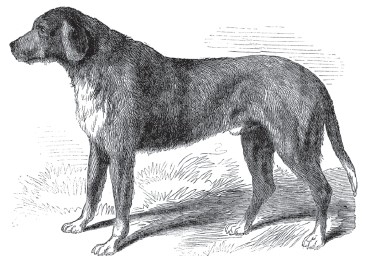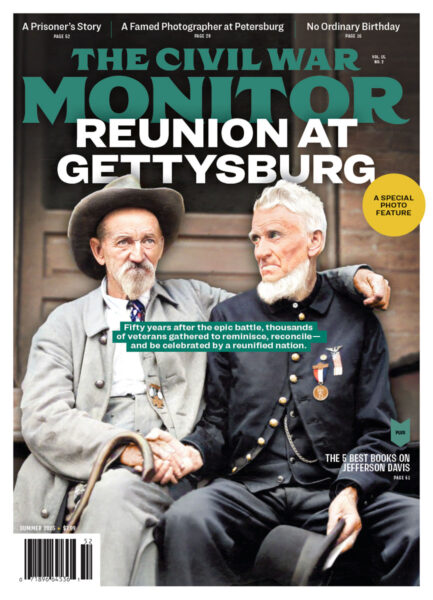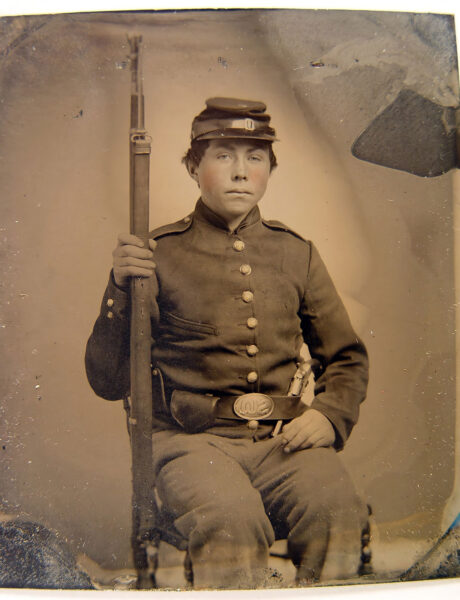“THE POETIC INCIDENTS of this war would fill many an interesting volume could they be collected by some able hand; and it would appear that it is not man alone who is being roused to deeds of heroism, but that even the brute creation are catching the contagion.” So wrote an unnamed soldier from the 1st Maryland Infantry (Union) in an article that appeared in the November 8, 1862, issue of Harper’s Weekly about a stray dog his comrades had taken in. “Jack,” as they named him, quickly found a home with the 1st and soon accompanied the regiment into action. Instead of cowering or hiding when incoming artillery shells exploded around them, Jack (shown here in an illustration that accompanied the article) “ran barking after the fragments and trying to catch them; thinking, no doubt, it was some pyrotechnic display got up for his special amusement.” A fixture in the 1st, he would run to find pools of water when the men grew faint from heat exhaustion on the march; catch chickens, and retrieve them in his mouth, to feed hungry soldiers; remain with sick or debilitated troops until assistance arrived; and howl, to the delight of his comrades, when he heard his name shouted at roll call. Jack, the writer concluded, “has exhibited far more courage, devotion, trust-worthiness, and other noble human qualities … than many a shoulder strapped and gold-bedizened animal now walking upon two legs.”
Jack was among the countless dogs who accompanied Union and Confederate troops as pets or mascots during the Civil War—and were remembered fondly for their companionship and loyalty. Others, however, left a much different impression. As Lorien Foote documents in this issue’s cover story, “Dogs of War” (page 26), the canines encountered by Union soldiers in the South often posed a physical threat; these dogs guarded prisoners, chased escapees, and even attacked troops in battle. While men may have decided the course of the conflict, dogs were a constant presence— positive and negative—throughout.
Want to share your thoughts on this or other articles in the issue? Send your emails to [email protected].






